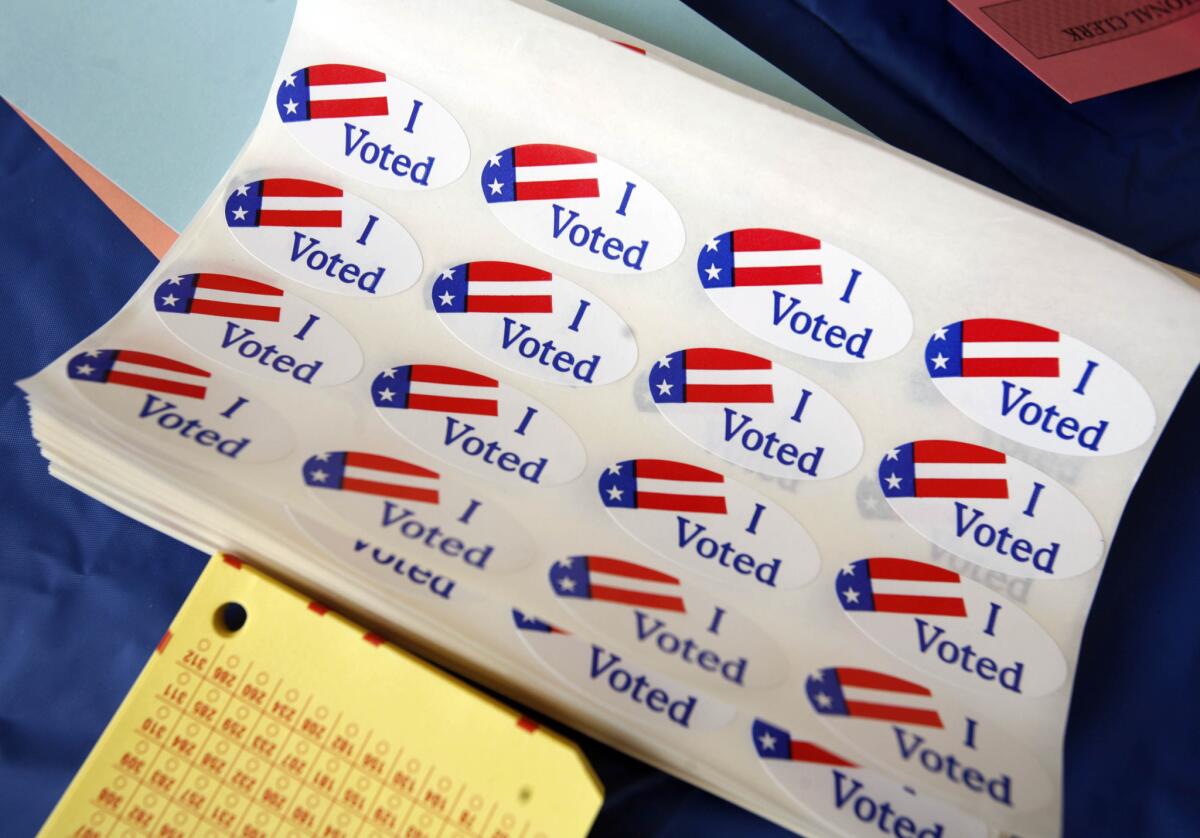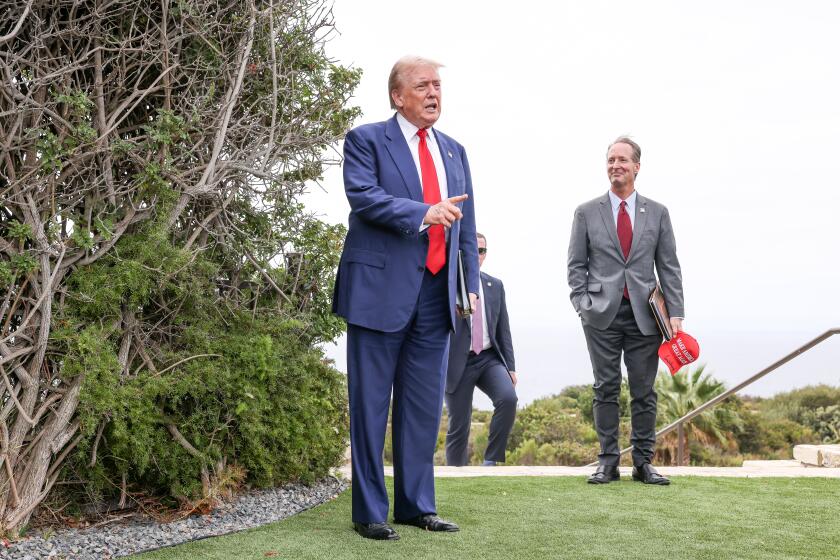I’m an independent voter and want to vote in California’s presidential primary: Now what?

Elections officials across California report a high volume of questions about the June 7 presidential primary from voters who are independent of all political parties, technically known as having "no party preference."
They also report a lot of confusion about the rules. Here are some of the most common questions and answers.
Can I vote in the Republican presidential primary?
No. Each party makes its own rules about who can, and can't, vote for its presidential candidates. Republicans aren't allowing any outside voters to cast ballots.
Anyone wishing to cast a GOP ballot for president on June 7 would have had to register with the party, and registration is now closed.
Who decided whether California's 'no party preference' voters could vote for a presidential candidate on June 7?
The political parties themselves. And that part of the issue has been hard to explain to California voters who have been voting for any candidate — regardless of party — under the state's top-two primary rules since 2012.
Presidential primaries, though, are different. In late January, political parties were required to let state elections officials know if they would allow "no party preference" voters to cast a ballot for president.
Election 2016 | California politics coverage | Sign up for the newsletter
Which parties are allowing 'no party preference' voters to cast a vote for president?
Three parties have opened their presidential primary to unaffiliated voters: the Democratic Party, the Libertarian Party, and California's American Independent Party (which is not the same as being an "independent" voter).
Californians who are registered as "no party preference" voters can cross over and select a ballot from one of these parties on June 7, but they must request the presidential ballot from the party.
It's important to remember that it's a choice that's being made only for this presidential primary. It will not impact any future election, unless a voter actually joined a political party before registration ended on May 23.
Is it too late to pick a party ballot for casting a presidential vote on June 7?
No, as long as a voter was registered as having "no party preference" by the end of the day on May 23.
For unaffiliated Californians who plan to vote in person on election day, there's nothing that needs to be done in advance. Simply show up at the assigned polling place and ask for a Democratic, Libertarian or American Independent Party ballot.
It's a little more complicated for unaffiliated voters who vote by mail and either haven't yet decided which party's ballot to request or want to change their mind.
Those voters need to either contact their county elections office by May 31 and ask to be mailed a new ballot, or take the existing ballot to their assigned polling place on election day and switch it there.
(Yes, even Californians with permanent vote-by-mail status have an assigned polling place. Some counties list it on the sample ballot, while others detail the information online or will provide it by phone.)
What happens if I don't request a ballot from one of those three political parties?
Californians who are unaffiliated with a party and don't request one of those three partisan ballots will not cast a vote in the race for president on June 7.
In most counties, the nonpartisan ballot will have a blank space where other voters will see the names of presidential candidates.
All other contests will still be on the nonpartisan ballot, including the race for U.S. Senate and races for seats in the Legislature and the U.S. House of Representatives. All local races also appear on nonpartisan ballots.
Why did I receive the wrong ballot in the mail, and now what?
While mistakes can happen for all kinds of reasons, a number of Times readers have emailed in recent days to say they received a ballot that doesn't reflect their current registration.
In many cases, say elections officials, these are voters who changed their registration status in the last few weeks before the May 23 registration deadline.
Given the logistics of putting thousands of ballots in the mail, many counties used voter data that was current at the end of April. And so someone who, for example, switched from being a Republican to a "no party preference" voter in the month of May might still have received a GOP ballot in the mail.
Even so, that ballot can be swapped out as long as local elections officials confirm that the voter is registered as having "no party preference."
If I've had a problem getting the right ballot in the mail, will my vote be counted?
Elections officials are quick to point out that they intend for every vote to count. The key issue, it seems, is when that vote will be counted.
Ballots that arrive in the mail before June 7 will be some of the first results released on election night. By law, any ballot postmarked by election day and received by June 10 will be counted.
Any Californian who received a ballot in the mail can also personally deliver it to elections officials on June 7.
The worst-case scenario: A voter will be asked to cast what's known as a provisional ballot. These are instances in which a person's registration can't be verified on election day, or an absentee voter who shows up at a polling place but didn't bring the ballot that arrived in the mail.
Provisional ballots are counted once the verification process can be completed and only in the races for which the voter is eligible. In other words, if you're a registered Republican but thought you were a "no party preference" voter, a vote cast on election day for Vermont Sen. Bernie Sanders won't be counted.
Follow @johnmyers on Twitter, sign up for our daily Essential Politics newsletter and listen to the weekly California Politics Podcast
ALSO
Sanders supporters sue to have California's voter registration deadline extended
Voting rights lawsuit filed by Sanders supporters awaits its day in court
Get the L.A. Times Politics newsletter
Deeply reported insights into legislation, politics and policy from Sacramento, Washington and beyond. In your inbox three times per week.
You may occasionally receive promotional content from the Los Angeles Times.








